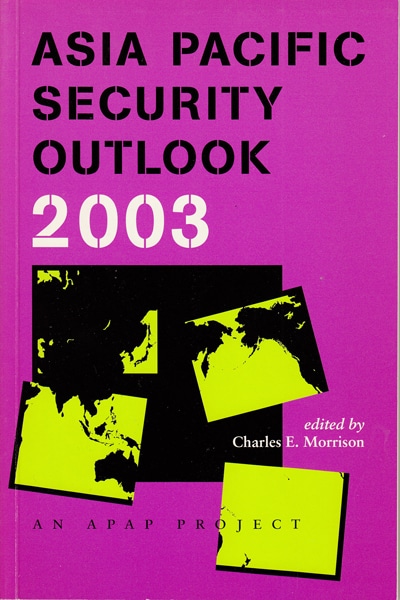Terrorist activity in Southeast Asia and North Korea’s threats to resume its nuclear reprocessing and missile testing activities are the most challenging security issues facing the Asia Pacific region in 2003. The Bali bombings in October 2002, in which almost 200 people were killed, brought the region into the full realization that terrorists might strike anywhere. The Korean issue demonstrated the difficulties in developing common positions when national perspectives on risks and approaches vary significantly. Other key issues of critical concern to the team of Asia Pacific security analysts who prepared the Asia Pacific Security Outlook 2003 were the impact of US policy toward Iraq, continued instability in Indonesia, and an increasingly uncertain economic outlook.
The Outlook covers the changing security environment, defense issues, and contributions to regional and global security for most of the member-countries of the ASEAN Regional Forum. It presents not a single view but places national perspectives side by side, permitting contrasts and comparisons. The Outlook is an inside view, written by a team drawn from 19 nations either within the region or having significant security interests in it.
The Asia Pacific Security Outlook is part of the Asia Pacific Agenda Project and is prepared through collaboration among the ASEAN Institutes for Strategic and International Studies, the East-West Center, and the Japan Center for International Exchange.
Contents
- The Regional Overview
- Australia
- Brunei Darussalam
- Canada
- China
- European Union
- India
- Indonesia
- Japan
- Republic of Korea
- Malaysia
- Mongolia
- New Zealand
- Papua New Guinea
- Philippines
- Russia
- Singapore
- Thailand
- United States
- Vietnam
- Index

